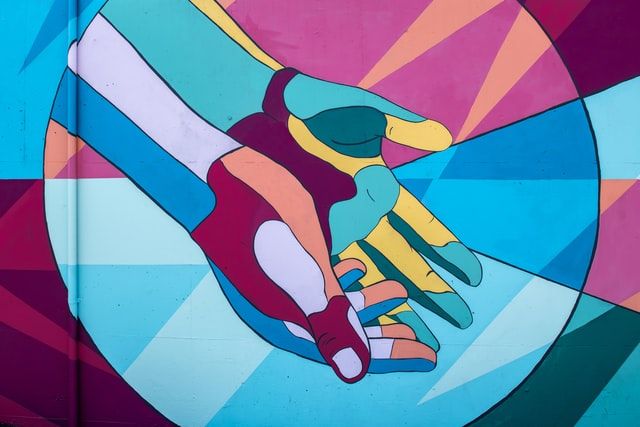
Distributed Autonomous Organizations, A Primer
If not stymied by existing stakeholders, the study and evolution of an organization to a DAO is a natural progression. Becoming a DAO can even be an alternative to going public or getting rolled up by a private equity firm.
We are seeing the early rise of a new form of organization around the world. Our current organizations are not working and cannot adapt quickly enough to the volume and pace of change they face today. People are quitting their jobs in record numbers. Millions more say they would rather quit their jobs than go back into the office. Organizations are struggling to leverage technology effectively. As noted in "Everything for Everyone" by Nathan Schneider, in cooperative or holacratic businesses, the business employees end up in competition and at odds with the company itself. When, as Schneider says, "Self-determination gets dangled before people but then yanked away as soon as it might really matter." What remedy might we find?
Companies Want to Share Abundance

To their credit, Uber tried to find a way to give stock and options to drivers. They were met with resistance at every turn by regulators. They wanted to share but the system fought back. AirBnB got creative and found a path. Our securities laws and regulations force companies who desire to widely distribute their shares to go to great lengths to do so. There are significant barriers to expanding the base of stakeholders.
Suppose we consider that a natural progression in an organization's life cycle is to eventually expand the base of stakeholders well beyond the former founders and funders. Suppose the expansion to all stakeholders includes all employees and customers. Thinking in this way is counter-intuitive to many and not easily accomplished by most organizations and their leaders. People do not like to give up power. When a company does this, it starts to look more like a cooperative and less like a traditional founder or board-led company.
The international cooperative alliance states that the most prominent global cooperatives generated $2.2 Trillion in gross receipts and employ 12 percent of the employed population of the G20 countries. Globally, this works out to one-tenth of the globally employed are being employed by cooperatives!
Cooperatives have historically taken hold during periods of economic upheaval. The things they have built tend to become the substrate of the future order of things. This last point is worthy of deep exploration all on its own.
Few realize it, but nearly any legal organization of people can also be a cooperative. The choice of organizing, sharing profits, making decisions, and operating is not dictated by the legal structure. It is dictated more frequently by the operating agreement of the organization. It has become so de rigueur throughout society that the hierarchical and top-down methods must be applied and permanent. They are usually not even questioned most of the time.
Alternate Organization Forms are Common
One of the largest, oldest, and most successful cooperatives is the Mondragon of Spain. It is a federation of cooperatives by now collectively earning over USD 12 Billion every year and employing over 81,000 people. But, a lesser-known and smaller story is one far less known of tea farmers in Vietnam that formed a cooperative. Tea farmers were struggling to get good pricing on their tea due to a combination of price controls and quality control. The local small-hold farmer ran a systemic innovation process called Sensemaker. They discovered that they should form a cooperative. This became the Luong Son Tea Cooperative. Then, they found they should take action to negotiate prices collectively and disseminate training. Ultimately, they learned how to find and share the best ways to grow, pick, pack, transport, and sell tea leaves for better prices. These actions led to increased consistency in product and higher prices from the buyer leading to improvements in overall quality of life. The farmers were stronger and happier working together in a cooperative.
The Possibilities are Immense, DAO

A DAO is a Digitized, Decentralized, and Demonetized Cooperative. These terms are three of the six D's popularized by Steven Kottler and Peter Diamandis in their books. The first two also could be what is described as a Platform Cooperative. Platform Cooperatives were described in the book, Platform Cooperatives by Trebor Holtz. However, there is yet another evolution that has happened. That's the addition of digital currencies to the DAO. Yes, many cooperatives throughout history have had their own currencies. Often, they have functioned as complementary currencies and, sadly, become mere tools for control. This is not the case with a mature DAO digital currency. If a platform cooperative becomes a DAO, it will have successfully taken its complementary currency, often called a utility token, into the public markets. As a shared owned digital asset of the collective of members of the DAO, it will become the embodiment of value creation by the members of the DOA. If the digital asset, the token, was properly designed, then it will be usable as an actual currency and a long-term value store. We will be expanding on this significantly in future articles of this series.
If not stymied by existing stakeholders, the study and evolution of an organization to a DAO is a natural progression. Becoming a DAO can even be an alternative to going public or getting rolled up by a private equity firm. Becoming DAO is a possible future for many organizations. We should all examine the pitfalls and promises of DAO's. They may be all our futures. But, it starts with a brief study of cooperatives.
This article is the first in a series. We will be exploring the evolution of DAO's, good and bad example, and examining the efforts of OpenExO to become a DAO. Stay tuned!
Cover Photo by Danielle MacInnes on Unsplash

ExO Insight Newsletter
Join the newsletter to receive the latest updates in your inbox.








